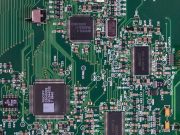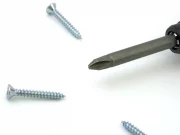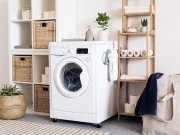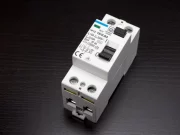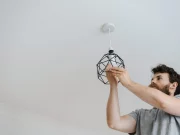In modern kitchens, garbage disposal has become an indispensable appliance, streamlining meal clean-up and waste management. However, this convenience raises an important question: Does a garbage disposal need its own circuit? Ensuring the safe and efficient operation of household appliances involves understanding the electrical demands they pose. In this article, we delve into the considerations surrounding the need for a dedicated circuit for garbage disposals, shedding light on the technical, safety, and regulatory aspects that homeowners should be aware of.
Does A Garbage Disposal Need Its Own Circuit?
Yes, garbage disposal typically benefits from having its own dedicated circuit. This setup ensures that the disposal can function safely and efficiently without overloading the kitchen’s main electrical circuit. By having a separate circuit, you reduce the risk of tripped breakers, prevent interference with other appliances, and adhere to electrical codes and safety standards.
Reasons For Using Dedicated Circuits For Specific Appliances
- Preventing Overloads: Appliances with high power demands, like ovens, air conditioners, and refrigerators, can easily overload shared circuits. Dedicated circuits ensure these appliances operate without causing circuit breakers to trip.
- Enhancing Safety: Appliances like space heaters or hair dryers can generate heat, increasing the risk of electrical fires. Dedicated circuits mitigate this risk by reducing the chances of overheating due to shared circuits.
- Consistent Performance: Dedicated circuits provide a stable power supply, preventing voltage fluctuations that can affect appliances’ performance, and lifespan, and even cause damage.
- Reducing Interference: Sensitive electronics, such as computers and entertainment systems, can experience interference from appliances. Dedicated circuits isolate these electronics from potential electrical noise.
- Meeting Electrical Codes: Some appliances, like garbage disposals or dishwashers, might be required by local codes to have dedicated circuits. Adhering to codes ensures a safer electrical system and home.
- Convenience and Flexibility: Dedicated circuits offer the convenience of using an appliance without affecting other areas of the house. This is especially useful for heavy appliances that demand a lot of power.
- Accommodating Future Upgrades: If you plan to install new, high-power appliances in the future, having dedicated circuits in place can prevent the need for extensive rewiring.
- Reducing Energy Waste: Dedicated circuits allow you to turn off power to specific appliances when not in use, reducing standby power consumption and saving energy.
- Avoiding Tripped Breakers: Appliances that draw a lot of power during startup, like air conditioners, can trip breakers if on shared circuits. Dedicated circuits prevent this inconvenience.
- Insurance and Home Value: A well-designed electrical system, including dedicated circuits, can positively impact your home’s value and may even affect insurance premiums.
How Does A Garbage Disposal Work?
A garbage disposal is a kitchen appliance designed to shred and dispose of food waste through the plumbing system, ultimately preventing it from ending up in landfills. Here’s how a garbage disposal works:
- Installation: A garbage disposal unit is typically installed under the kitchen sink, attached to the drain. It consists of a motor, a grinding chamber, and a set of rotating blades.
- Switching On To activate the garbage disposal, you turn on a switch located on the wall or the unit itself. This switch sends an electrical signal to the motor.
- Grinding Process: Once activated, the motor turns the set of rotating blades inside the grinding chamber. The blades are designed to spin rapidly, creating a powerful vortex.
- Food Waste Addition: You can feed small pieces of food waste into the sink’s drain. As the food waste enters the disposal unit, the spinning blades forcefully chop and grind it into tiny particles.
- Water Flow: During the grinding process, water is usually run into the sink to help carry the ground-up food waste through the plumbing system. The water also helps cool down the motor and flush away the particles.
- Particle Size: The blades are efficient at breaking down food waste into very small particles, usually less than 2 mm in diameter. This particle size is small enough to easily pass through plumbing pipes without causing blockages.
- Drainage: The ground-up food waste, mixed with water, flows through the plumbing system and into the sewer or septic system of your property.
- Cleaning And Deodorizing: Some garbage disposals have features like an anti-jam mechanism and self-cleaning technology to keep the unit functioning smoothly and reduce unpleasant odors.
- Maintenance: Regular use of the garbage disposal helps prevent the buildup of food waste in the pipes, reducing the risk of clogs. Running cold water while the disposal is in use helps solidify grease and oil, making it easier for them to be ground and washed away.
- Limitations: Not all types of food waste can be processed by a garbage disposal. Items like bones, hard shells, fruit pits, and fibrous materials like corn husks can damage the unit or cause clogs. It’s important to refer to the manufacturer’s guidelines for proper usage.
Pros Of Using A Dedicated Circuit For A Garbage Disposal
Using a dedicated circuit for garbage disposal offers several advantages that contribute to the safety, efficiency, and overall functionality of both the disposal unit and your kitchen’s electrical system. Here are five pros of using a dedicated circuit for garbage disposal:
- Prevents Circuit Overloads: Garbage disposals can draw a significant amount of power when in operation. By having a dedicated circuit, you ensure that the disposal’s power demands do not overload the circuit shared with other appliances. This prevents tripped breakers and potential electrical hazards.
- Enhances Safety: Dedicated circuits isolate the disposal from the rest of the kitchen’s electrical system. This isolation reduces the risk of electrical interference, which can cause issues like power fluctuations or even appliance malfunctions. It also minimizes the chances of electrical shocks or fires due to compromised wiring.
- Optimizes Performance: Appliances perform best when they have access to a consistent and uninterrupted power supply. A dedicated circuit ensures that the garbage disposal receives the power it needs without being affected by the power demands of other appliances on the same circuit.
- Compliance with Electrical Codes: Many electrical codes and regulations require certain high-power appliances, like garbage disposals, to have dedicated circuits. Adhering to these codes not only ensures your home’s safety but also prevents potential legal and insurance-related issues.
- Reduces Interference: Sharing a circuit with multiple appliances can lead to electrical noise, which might negatively impact sensitive devices such as computers or entertainment systems. By providing a dedicated circuit for the garbage disposal, you minimize the chances of such interference.
Cons Of Using A Dedicated Circuit For A Garbage Disposal
While using a dedicated circuit for garbage disposal offers several advantages, there are also some potential drawbacks to consider. Here are three cons of using a dedicated circuit for garbage disposal:
- Installation Costs: Setting up a dedicated circuit for garbage disposal involves additional electrical work, which can lead to increased installation costs. This includes the cost of wiring, circuit breakers, and potentially hiring a licensed electrician to ensure proper installation. For homeowners on a tight budget, this added expense might be a concern.
- Limited Availability of Circuits: In some older homes or smaller kitchen spaces, the availability of electrical circuits might be limited. Adding a dedicated circuit for the garbage disposal could strain the available circuit capacity, making it challenging to allocate circuits for other important appliances or devices.
- Complexity of Installation: Installing a dedicated circuit involves working with electrical wiring and potentially altering your home’s electrical setup. If you’re not experienced with electrical work, attempting a DIY installation could lead to mistakes, safety hazards, or code violations. Hiring a professional electrician adds to the cost but ensures a safe and compliant installation.
Conclusion
In the realm of kitchen convenience, the question of whether garbage disposal needs its own circuit holds significance. While a dedicated circuit entails initial costs and potential installation complexities, its merits in preventing overloads, enhancing safety, and ensuring compliance with electrical codes are undeniable. Balancing these considerations with your budget and available circuits is key. Ultimately, the decision boils down to prioritizing a seamless, secure, and efficient kitchen environment that aligns with both your home’s electrical infrastructure and your peace of mind.
FAQ’s
Can I Share A Circuit With Other Appliances?
It’s generally recommended to use a dedicated circuit for a garbage disposal to prevent overloads and ensure safe operation. Sharing a circuit with high-power appliances can lead to tripped breakers and compromised performance.
Is A Gfci Outlet Sufficient For A Garbage Disposal?
While a GFCI (Ground Fault Circuit Interrupter) outlet is a safety measure, it might not be enough to handle the power demands of a garbage disposal. Using a dedicated circuit offers better protection against overloads and electrical hazards.
Can I Install A Dedicated Circuit Myself?
Installing a dedicated circuit requires electrical expertise and compliance with codes. Due to safety concerns and potential legal issues, it’s advisable to hire a licensed electrician for the installation.
What If My Kitchen Has Limited Circuits Available?
If your kitchen has limited circuits, consult an electrician to assess your options. They can help determine the best approach, which might involve redistributing circuits or considering a subpanel to accommodate new dedicated circuits.
Do I Need To Follow Local Electrical Codes?
Yes, adhering to local electrical codes is crucial for safety and compliance. Some areas may require dedicated circuits for specific appliances, including garbage disposals. Failing to comply could lead to safety hazards, insurance complications, and legal issues.




